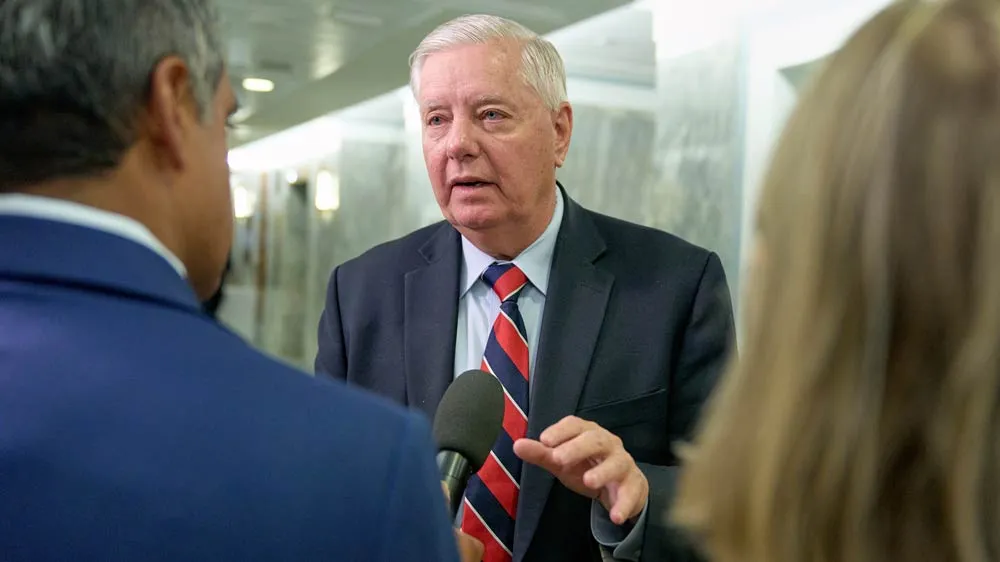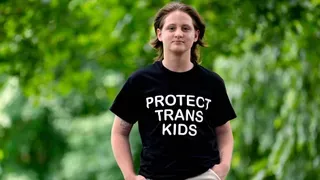July 5, 2007
AIDS Action, Victory Programs partner on program for families affected by addiction
David Foucher READ TIME: 8 MIN.
The adjoining bedrooms at Joelyn's Family Home, which are painted in warm shades of green, yellow and orange, are still empty. Multi-colored striped bedspreads have yet to be ruffled by sleepy mothers and restless children. The pristine walls of the playroom, outfitted with a toy kitchen set, a gargantuan beanbag and kid-sized tables, haven't yet been set upon by the tiny, finger paint-encrusted hands of a wayward aspiring artist, as they inevitably will be. Visitors to the large dining room, with its trendy suspended ceiling and identical back-to-back kitchens, don't yet hear the clang of dirty dinner dishes amassing in the sinks or tweens grumbling about having to wash them.
But Rebecca Haag and other staff members from AIDS Action Committee (AAC) left the residence after a June 20 open house awed by the sense of community embodied by Joelyn's Family Home, a new substance abuse treatment program for women with children. "A community of women with children who have taken a really important step to try to pull their lives together and to be responsible moms while at the same time trying to address their own issues," is how Haag, AAC's executive director, described the home. "And we couldn't have been more proud to be a part of that."
AAC was a significant player in an extraordinary community effort to open Joelyn's Family Home, which is owned and operated by Victory Programs, a nonprofit agency that serves those struggling with varying combinations of addiction, homelessness and chronic mental and/or physical illness, and has long been at the fore of serving the LGBT community and people with HIV/AIDS. Aside from AAC's involvement, Joelyn's Family Home, which is situated on Long Island in the Boston Harbor, was made possible with the help of the Boston Public Health Commission, the architecture firm TRO Jung Brannen and longtime Victory Program benefactors Janet and Jeff Larson of Wellesley. In tribute to a long-time Victory Programs fundraiser, the home is named for Joelyn Scott Fiorato, the mother of Victory Programs President and Executive Director Jonathan Scott.
Scott said AAC's involvement in the process tipped the balance in favor of forging ahead with the multi-million dollar project. After selling an underused residence in Mission Hill, AAC gave a $350,000 grant - nearly the entire proceeds from the property sale - to fund the building of Joelyn's Family Home. "It was that grant where I actually said, 'Go, build. We've done it.' You know, it got us over a huge, huge barrier," said Scott. After that, "our lenders at Wainwright Bank and other donors just said 'Well, you've hit this milestone where now we really want to invest in the project.'"
The grant from AAC is "unprecedented," said Scott. "I've never in my career known another nonprofit to do that. ... It is a legacy of the highest order. And they've been so understated about this. They have asked for no recognition, they've asked for no press conferences or whatever you do when you pull people together."
Joelyn's Family Home is scheduled to begin accepting residents this month. With the capacity to accommodate up to 25 women and their children, it is a short-term transitional program that enables women to seek treatment for substance abuse without relinquishing the care of their kids to others.
The program grew out of discussions that began three years ago by the Victory Programs Board of Directors about gaps in the agency's programming, which includes a number of residential treatment facilities in neighborhoods throughout the city. Although 65 percent of Victory Programs services are now aimed at helping women and children, said Scott, there was one lingering gap: Although many women live just as chaotically and dysfunctionally as many men, more often than not it is the women who are still trying to hold their families together despite their instability. "This comes from the beginning of time, I guess," laughs Scott, struggling to explain the phenomenon. "But one thing for us that we really recognized was how many women we really ... couldn't get into treatment because even though they were homeless they were not going to give up their kids to protective custody."
Given the price of real estate in the city of Boston, siting is an eternal problem for Victory Programs. The first person to whom Scott turned when he began the search for a location for the new program was John Auerbach, who at the time was the executive director of the Boston Public Health Commission (Auerbach is now the state's public health commissioner). Auerbach told him there was 14,000 square feet of space out on Long Island that was basically his for the taking - and with good reason. It was on the first floor of a tuberculosis hospital that had fallen into disrepair after 40 years of neglect.
"It really was just deplorable" Scott recalled of the property. "About the worst I've ever seen." The ancient x-rays of long ago patients were scattered among abandoned x-ray machines and decrepit furnishings in moldy, swampy rooms. Leaky plaster had crumbled to the floors. Where windows had once let in the sun's healing rays, there were walls of brick. "Someone described it as what they imagined when Ken Kesey wrote One Flew Over the Cuckoo's Nest," said Scott. But Victory Programs staffers, among them Chief Operating Officer Jim Pettinelli - who would eventually oversee the project - looked past the filth, seeing instead an opportunity for more badly needed treatment beds. Scott signed a 50-year lease with the city for the bargain-basement price of one dollar per year. The only thing the organization had to do now was come up with about $2 million to give the place a complete overhaul.
That's where TRO Jung Brannen stepped in. The Boston-based firm had done some exterior work on Victory Programs' South End headquarters some years ago, and offered to do work on Joelyn's Family Home pro-bono. "We met with them and from the beginning they treated us like royalty," said Scott. The firm had architects on site every day during the rehab effort and convinced its vendors to donate accents like the Italian tiles for the bathrooms, top-of-the line carpets, paint and drywall and stylish interior lighting, among other fancy touches.
Scott then turned to Janet and Jeff Larson, who have long been major Victory Programs contributors through their Larson Family Foundation, who had previously expressed their willingness to lead a capital campaign for a program for women and children. They instantly kicked in a cash donation toward the $2 million goal that got the fundraising ball rolling.
"But we had a hug gap to fill," said Scott. "Huge. We had another $1.7 million to go."
That's when Joe Carleo arranged a meeting for Scott with Haag and AAC Founding Director Larry Kessler. Carleo, the executive director of the AIDS Housing Corporation was aware that AAC was looking to sell its residential program and reinvest the money.
After Scott and Dennis Balog, who at the time chaired the Victory Programs board, made their pitch to the AAC leaders, they were invited back to plead their case with the organization's board members and management. The deal was sealed not long after that.
After years of seeing its own resources dwindle due to state budget cuts, Haag acknowledged that the AAC board grappled with the idea of giving the money away.
"And actually I am very proud [of the board]," she said. "I think our board is remarkable in that they maintain the focus on our mission. And our mission is to stop the spread of HIV and to care for those already living with it. It's not about AIDS Action Committee." Where AAC's housing program was only serving two to three people and turnover at the residence was high, with Joelyn's Family Home "we saw opportunity to serve 20 people immediately," said Haag.
As the construction of Joelyn's Family Home proceeded, Scott learned last October that his 84-year-old mother was dying of cancer. "We went literally from having dinner with her to a week later she's telling me, 'I've got cancer everywhere.'" The disease had invaded her lungs, bones, liver. She was not going to undergo chemotherapy.
But Joelyn Scott Fiorato lived a long and colorful life - as a mother and grandmother, as the first female movie critic for the New York Times, as a best-selling cookbook author, and newspaper columnist, to name just several of her many achievements. By the time of her death on Jan. 25 of this year Fiorato had accumulated 20 years of sobriety and five husbands. She published an account of her trip with Scott to the 1992 march on Washington and AIDS Quilt display on the pages of this newspaper. But many years ago, when Victory Programs was struggling to stay afloat, she turned much of her attention to raising money for the organization. Fiorato penned letters to her friends in New York's social scene and others around the world. She annually attended Boston's AIDS Walk. She filled tables with people at fundraising dinners and attended the openings of each new program. Near the end of her life she had renounced just about all of her earthly possessions.
"'I'm done with the house, I'm done with jewelry, I'm done with the clothes and I'm done with the husband,' is kind of how she put it," Scott says with a quiet laugh. "The one thing she didn't want to leave behind was her 20 year AA medallion. And she had that with her when she died."
Though she had let go of all material things, when Scott visited his mother in the hospital and told her that Pettinelli and Victory Programs Development Director Donna Clark wanted her permission to name the new program in her honor she simply closed her eyes and said, "That really is something."
Scott, whose association with Victory Programs goes back more than three decades, said his staff's decision to honor his mother in such a way rendered him speechless. "It took my breath away," he said. "It was something that was so out of anything I would have ever thought about or anything that I would have wanted or expected, because it just kind of came spontaneously and her death happening while we were building this program. And my staff not doing it for me ... but really doing it because of her and what she symbolized."
But he has no trouble finding words of praise for the impact of AIDS Action Committee's $350,000 grant on allowing Joelyn's Family Home to open its doors, a topic he returns to several times during two interviews. "It is huge. ... This money is going to help hundreds and thousands of people for generations to come," said Scott. "This is going to go way beyond me and Victory Programs." Decades and decades of people will benefit from the investment; lives will be saved and changed. For some residents of Joelyn's Family Home, Scott acknowledged, their stay will be only a momentary respite from pain.
"For one brief moment in their lives they will feel that somebody cared about them," he said, "and that they could be in a place of dignity."
David Foucher is the CEO of the EDGE Media Network and Pride Labs LLC, is a member of the National Lesbian & Gay Journalist Association, and is accredited with the Online Society of Film Critics. David lives with his daughter in Dedham MA.







